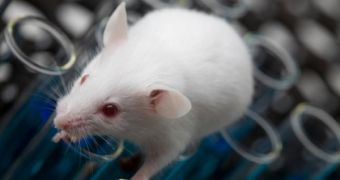A paper published in the journal Science Translational Medicine this past September 4 details the use of an experimental compound to rid several laboratory mice of a medical condition not all that different from the Down syndrome that some people are born with.
The scientists who worked on this project explain that these mice all had fairly poor learning abilities and memories.
Shortly after being injected with this compound, known to the scientific community as a sonic hedgehog pathway agonist, they started feeling better and performed significantly better on tasks intended to test their ability to learn and remember various information.
What's interesting is that the compound wasn't even intended to boost the mice's learning abilities and memory. On the contrary, it was designed to encourage their cerebellums to grow to a normal size, Science Daily tells us.
Roger Reeves, Ph.D., explains that people suffering with Down syndrome have a cerebellum that is significantly smaller than that of healthy individuals. Therefore, he and his fellow researchers have developed this compound in an attempt to sort out this issue.
Much to their surprise, the compound performed better than expected, and also improved the rodents' cognitive skills.
“Most people with Down syndrome have a cerebellum that's about 60 percent of the normal size. We treated the Down syndrome-like mice with a compound we thought might normalize the cerebellum's growth, and it worked beautifully,” researcher Roger Reeves commented on the outcome of these experiments.
“What we didn't expect were the effects on learning and memory, which are generally controlled by the hippocampus, not the cerebellum,” he went on to say.
Presently, the compound used to treat these rodents is not considered safe enough to be administered to human patients. Thus, scientists say it might significantly up cancer risk, precisely because it triggers cell growth.
However, the researchers hope that it will not be long until they manage to roll out a drug that's similar to it and that would help treat Down syndrome in humans.

 14 DAY TRIAL //
14 DAY TRIAL //